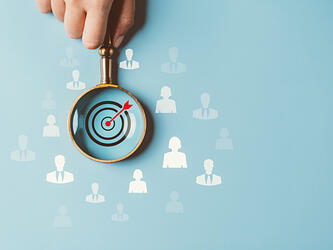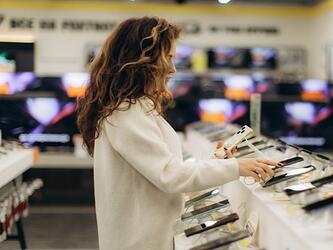Brands benefit from World Cup association
GlobalWebIndex (GWI) asked members of its Real-Time panel to identify the tournament’s official sponsors at the start of the event. Internet users in Brazil, the US and the UK were invited to pick official World Cup sponsors from a selection of 38 brands which included all of the official sponsors, as well as a range of competitors.
It found that Coca-Cola (sponsor since 1978 ), Adidas (since 1970 ) and McDonald’s (since 1994 ) are the most recognised World Cup sponsors, confirming the positive impact of being a long-standing partner. Coca-Cola had the best figures of all – it was selected by two thirds in the UK and USA as well as 85% in Brazil.
MasterCard – a previous sponsor between 1990 and 2006 – has succeeded in still being associated with the tournament by consumers despite no longer being an official sponsor: overall, 38% of people identified it as an official 2014 partner – not far behind the 42% scored by current sponsor Visa.
Perhaps unsurprisingly given the location of this World Cup, recognition levels for all of the core sponsors are highest in Brazil. Brands which have been running heavily football-themed marketing campaigns – in spite of having no official link with the tournament – were picked as sponsors by significant minorities. Nike, for example, with its ads featuring Ronaldo, Rooney and Neymar – was selected by nearly a third of people in the UK and US, as well as more than 40% in Brazil. Similarly, a fifth in the UK and a third in Brazil believe that Samsung is a sponsor (its ads feature Ronaldo and Rooney alongside Messi).
People in the UK are most likely to believe that Carlsberg is an official sponsor, while Puma, Amex and Pepsi score the highest percentages in the US. Brazilians are much more likely to believe that P&G – an official sponsor for the 2016 Rio Olympics – is also associated with the World Cup.
GWI plans to conduct another wave of research on the final day of the World Cup – to identify which sponsors have benefited from their association as well as which non-sponsor brands have successfully tapped into the buzz surrounding the tournament despite lacking an official connection.

We hope you enjoyed this article.
Research Live is published by MRS.
The Market Research Society (MRS) exists to promote and protect the research sector, showcasing how research delivers impact for businesses and government.
Members of MRS enjoy many benefits including tailoured policy guidance, discounts on training and conferences, and access to member-only content.
For example, there's an archive of winning case studies from over a decade of MRS Awards.
Find out more about the benefits of joining MRS here.














0 Comments